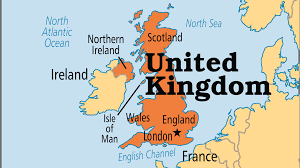International Relations
UK’s Indo-Pacific Tilt
- 28 Apr 2021
- 6 min read
Why in News
Recently, the British Government said that the UK Carrier Strike Group’s “globe-spanning maiden deployment will feature visits to India, Japan, Republic of Korea and Singapore”.
- Earlier, the European Union had announced that it will reinforce its strategic focus, presence and actions in the Indo-Pacific with the aim of contributing to the stability, security, prosperity and sustainable development of the region.
Key Points
- About the UK Carrier Strike Group (CSG):
- CSG:
- Carrier strike groups are often formed for a specific mission rather than by platform.
- The carrier is typically part of a larger formation, usually including destroyers, frigates and submarines, as well as logistical-support ships.
- The carrier provides the primary offensive air power, while the other vessels provide the wider defence and support role and can also participate offensively, such as with the launch of missile systems.
- UK CSG:
- It will be led by the aircraft carrier HMS Queen Elizabeth.
- It will be a global deployment, from the North Atlantic to the Indo-Pacific.
- The “28-week deployment” will span 26,000 nautical miles, and CSG will undertake over 70 engagements in over 40 nations.
- As part of the UK’s tilt towards the Indo-Pacific region, the CSG will conduct engagements with Singapore, the Republic of Korea, Japan and India.
- UK CSG Deployment in Indo-Pacific:
- It will bolster already deep defence partnerships in the region, where the UK is committed to a more enduring regional defence and security presence.
- Engagement in Singapore, the Republic of Korea, Japan and India will provide the opportunity for strengthening the UK’s security relationships, tightening political ties and supporting UK exports and International Trade agenda.
- CSG:
- India-UK Ties:
- Political Cooperation:

- The bilateral relationship was upgraded to a strategic partnership in 2004.
- The UK has reaffirmed its support for India’s permanent membership of the UN Security Council.
- Scope in Economic Cooperation:
- India’s skilled labour, technological assistance and the vibrant market will open a lot of avenues for Britain which has recently parted ways with the European Union.
- Along with the world, India is now steering towards 5G. The UK will need India’s help to marginalize China in the telecom market.
- The UK is one of the largest investors in India, among the G20 countries.
- Defence Exercises:
- Air Force Exercise ‘Indradhanush’.
- Navy Exercise Konkan.
- Army Exercise: Ajeya Warrior
- Political Cooperation:
- Indo-Pacific: The New Point of Convergence:
- With the UK expanding its footprint in the Indo-Pacific and India working toward gaining prominence as the net security provider in the region, both countries’ aspirations and future seem to be intertwined.
- An area of focus up ahead should be to enhance military-to-military interactions.
- While there exist service-specific joint training exercises, their pace has not matched with India’s exercises with the US.
- The lack of foundational agreements may be acting as a limiting factor as well. While an MoU on joint training is under development, a military logistics agreement is expected to be signed soon.
- This will give India and the UK reciprocal access to each other’s bases and formalize the procedures for receiving and paying for logistic support, such as servicing and refueling.
- The UK, with its bases in Kenya, Brunei, Bahrain, Oman, Singapore, and the British Indian Ocean Territory, is by no means new to the region. Having such an infrastructure already in place will not only aid its ambitions in the region but also be valuable to its partners.
- For India, access to these bases will augment its reach further into the Indian Ocean.
- Working with other like-minded countries, such as Japan and Australia, there is great scope for close cooperation in areas of maritime domain awareness and intelligence sharing by leveraging the strength of each other’s assets.
- In this regard, Japan’s initiative to enhance defence intelligence sharing with India, Australia, and the UK is a significant step.
Way Forward
- Moving forward, the India-UK defence relationship will no longer be limited to being one of a buyer-seller. It will not stop at defence production either.
- Through close maritime cooperation and a joint approach toward maintaining regional security and stability in the Indo-Pacific, the two countries have the potential to forge a truly comprehensive strategic partnership in action.




